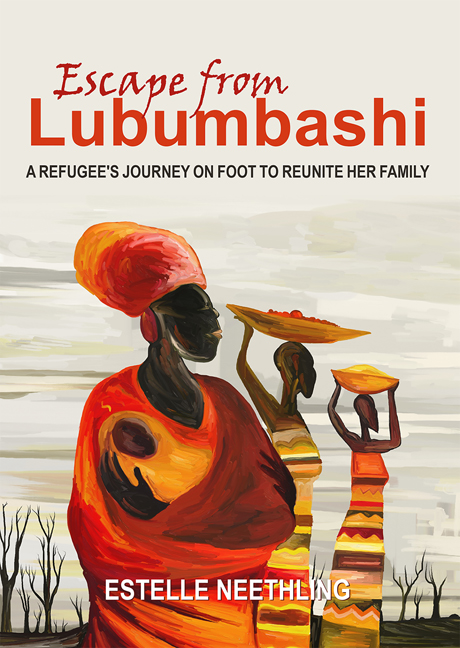9 - Change of fortune in Malawi
Summary
It was cloudy and windless on that winter's day in July 1997 when Adolphine started walking to Malawi from Meheba – as before, together with a group of hundreds of refugees. Again she related how they walked most of the way. Some of the areas they had to pass through were mountainous but the arduousness of their journey was occasionally alleviated by distances travelled by truck. Fortunately they were travelling in Zambia's dry season and although the temperature dropped sharply at night, the weather was reasonably mild during the day.
After Lusaka they followed a route next to the Luangwa River which was long and gruelling by foot. They reached the border between Zambia and Malawi in October. By this time ten months had passed since Adolphine had been wrenched from her life in Lubumbashi and everything that was dear and familiar to her.
Most of the exhausted group had transport up to the border, but once they crossed into Malawi they were obliged to walk for about an hour to reach the border gates. There were villages on both sides and they had to approach stealthily through the bushes. This was difficult and fraught with danger. “Foreigners weren't welcome in Malawi”, she related in a serious, but matter-of-fact tone of voice. “We had to pretend to be locals by tying our skirts the same way as the local people.” They crossed unencumbered by heavy loads, heading on to a place where they could find transport to Lilongwe. There were buses going to the capital, a journey which took a few hours by road. “Language was a problem [most people only spoke Chichewa], but once again my knowledge of English served me well.”
They went to Dzaleka refugee camp, roughly forty five kilometres from the capital, which had come into existence a few years previously. This camp had been established by the UNHCR (United Nations High Commissioner for Refugees) to protect refugees, mainly from Burundi, Rwanda, Somalia, Eritrea, the DRC and Ethiopia. “I went to the camp in the hope of finding my brother-in-law, Albert. I begged every Congolese I came across to help me, but nobody knew him. I was told that some Congolese people had integrated into the community. The only advice they had for me was to ‘go and register’. But I still found it traumatising even to think of officially becoming a refugee.
- Type
- Chapter
- Information
- Escape from LubumbashiA Refugee's Journey on Foot to Reunite her Family, pp. 47 - 52Publisher: University of South AfricaPrint publication year: 2021



